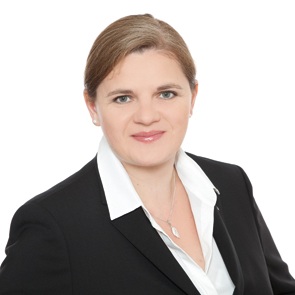Due to the fact that the Bundesrat did not agree to the Annual Tax Bill 2013, amendments required based on case law and EU regulations have been included in the Amtshilfe-RLUmsG. From a VAT perspective, the changes regarding the place of supply for services, issuing of invoices and input VAT deduction are particularly relevant.
1. Changes regarding the place of supply for services
1.1 Supply of services to legal persons
In future, the place of supply for services provided to a legal person who provides economic activities as well as non-economic activities is where the legal person has established his business. This applies regardless of whether the service is used for the economic part or the non-economic part of the business. Only where the service is exclusively used for private purposes, the place of supply would be where the supplier is resident (sec. 3a para 1 German VAT Act).
1.2 Leasing of means of transport
The place of supply for the long-term hiring of transportation to non-taxable persons is where the customer is established. Suppliers of long-term leasing agreements with private persons will be obliged to VAT register in the Member State where the lessee is resident. However, the place of hiring a pleasure boat will be the place where the pleasure boat is actually put at the disposal of the customer.
2. Changes regarding the issuing of invoices
The changes to sec. 14, 14a German VAT Act are based on Council Directive 2010/45/EU. These changes should have been implemented in all Member States by 1 January 2013. However, the changes become effective the day following the publication of the AmtshilfeRLUmsG and do not apply retrospectively, i.e. since 1 January 2013.
2.1 Statement “Gutschrift”
When the customer receiving a supply issues an invoice, mention of “Self-billing” (in German: “Gutschrift”) is required. As a consequence, in the future, any other documents, such as invoice corrections are not to be termed “Gutschrift”.Otherwise, there is a risk that the recipient of the document will be liable for the VAT shown on the document according to sec. 14c German VAT Act. Other commercial documents are to be titled e.g. “invoice correction”, “request for payment” or “debit note”. It should be possible to use the English terms for such documents, such as “self-billing invoice” for invoices issued by the customer and “credit note” for other commercial documents.
2.2 Provisions of Member State of the residence decisive
Where a taxable person, who is not resident in Germany, provides services taxable in Germany which are subject to the reverse charge mechanism, the invoices have to be issued according to the VAT law of that Member State in which the supplier is resident. In the case of self-billing invoices, the provisions of that Member State in which the transaction is taxable, are applicable.
2.3 Statements regarding reverse charge transactions
Where a supplier resident in Germany provides B2B-transactions taxable in another Member State which are subject to reverse charge, the invoice must contain the statement “Reverse Charge” (in German:“Steuerschuldnerschaft des Leistungsempfängers”) (sec. 14a para 1 German VAT Act). Also, in other cases where the VAT liability is shifted to the customer (e.g. construction services), this remark has to be stated on the respective invoice (sec. 14a para 5 German VAT Act). The remark has to contain the exact wording as stated above. However, it should be possible to use any other language.
2.4 Point of time to issue invoices
Invoices regarding cross-border services (sec. 14a para 1 sentence 2 German VAT Act), as well as regarding intra-Community supplies (sec. 14a para 3 sentence 1 German VAT Act), are to be issued by the 15th day of the month following the month in which the transaction has taken place.
3. Changes regarding the input VAT deduction
3.1 Deduction of import VAT at the time when VAT is due
Until now, only the import VAT already paid was deductible as input VAT. According to the ECJ-case C-414/10, Société Véleclair, the right to deduct import VAT cannot be madeconditional upon the actual prior payment. Therefore, the import VAT is deductible at the point in time when the VAT is due. As a consequence, the simplification rule that the import VAT is deductible at the point in time when the VAT is due only in the case of a deferment account, is now obsolete. Thus, sentence 3 and 4 in sec. 16 para 2 German VAT Act have been deleted.
3.2 Input VAT deduction regarding acquisition VAT
Only when the intra-Community acquisition ends in Germany, the acquisition VAT is deductible in Germany (sec. 3d sentence 1 German VAT Act; Art. 40 VAT Directive). The acquisition VAT owed according to sec. 3d sentence 2 German VAT Act (Art. 41 VAT Directive) is not deductible. For clarification purposes, these changes have been implemented into sec. 15 German VAT Act. This limitation of the deduction of acquisition VAT has already been applied by the tax authorities (Art. 15.10 para 2 German VAT Circular).
4. Further amendments
- Extension of the application of certain provisions regarding VAT exemptions (sec. 4 no. 14, no. 20; sec. 8 para 2 no. 1 German VAT Act).
- Postage stamps and collectors’ items are not subject to the reduced VAT rate and works of art, only under certain preconditions.
- Application of the reverse charge scheme for the supply of gas and electricity by a taxable person resident in Germany.
- Amendment of the definition of a taxable person not resident in Germany: it is not relevant whether a taxable person has his private residence in Germany.
- Input VAT deduction regarding insurance services where the customer is resident in a non-EU countrie (sec. 15 para 3 no. 1b and no. 2b German VAT Act).

Contact:
Eveline Beer
Rechtsanwältin, Steuerberaterin
Phone: +49 (0)89 / 217 50 12 - 35
eveline.beer@kmlz.de
As per: 08.07.2013
